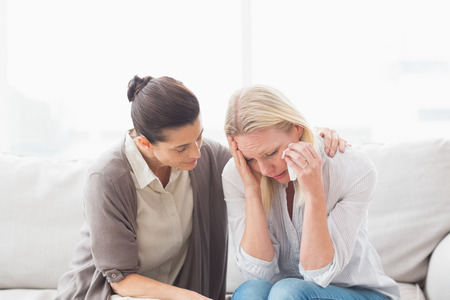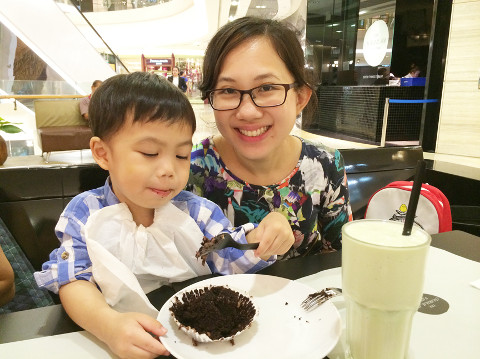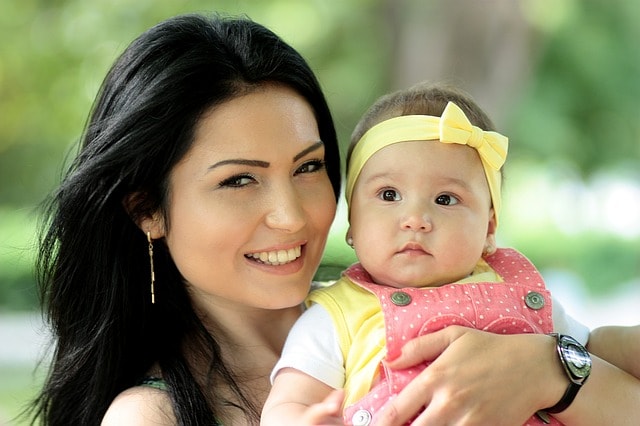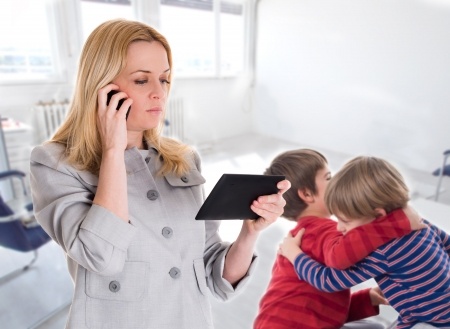Have you heard of the term “mummy wars”?
It’s nothing new, apparently.
In fact, mummy wars have probably been around since the beginning of time – well, since the first woman became a mum at any rate.
We are quick to compare, to assume and to believe that our ways are the best – it’s simply human nature.

Is it better to breastfeed or bottlefeed?
Should all women stop work and become full-time mothers? Is it right for them to feel passionate about their job?
What about enrichment classes for the kids – yes or no?
The dilemmas we face are never-ending.
And it’s not just about the mums either – dads have their two cents’ worth to share too, and fatherhood is no less of a challenge than motherhood.
When it comes to parenting – almost everyone has an opinion on every subject, and oftentimes, we are quick to state our point of view, passionate about our beliefs and values, but slow to listen to and encourage our fellow parents in the trenches of life.
“Don’t think about it” doesn’t cut it in most situations. After all, it’s not easy to just stop thinking about a particular concern with a snap of fingers.
“I’ve seen worse” is all very well and good for you, the person saying it, but it doesn’t necessarily make the other parent feel any better about his situation.
In fact, it piles on the guilt because you are actually saying, “Your case is nothing special or new, so stop whining about it and be thankful for what you have”.
And “Don’t worry, it will be okay”, while certainly well-meaning and somewhat encouraging, doesn’t fully address the deep anxiety that the other person is experiencing that it might actually not be okay.
So what’s the most powerful thing you can say to another parent?
In my opinion, nothing.
It’s not that your advice is unhelpful or your experience is not applicable.
It’s not that your kind words fall on deaf ears or that those sayings that once encouraged you won’t help another person.
Furthermore most, if not all of us, don’t set out to hurt one another or lord it over them with our achievements. Most of us want to say the right thing, do the right thing.
But before you share another cliché, piece of advice or the wisdom of your experience, wait.
Hold back. And listen.

According to psychologist Karl A. Menninger, “listening is a magnetic and strange thing, a creative force. The friends who listen to us are the ones we move toward. When we are listened to, it creates us, makes us unfold and expand.”
Real listening is not about racing ahead in your mind to think of a suitable reply.
It’s about being fully present, with your friend, to hear their perspective, their struggle, their beliefs.
It’s not about what you want or need to say, but about what your friend is experiencing. A good listener is not there to judge the other’s thoughts or actions but to seek to understand.
And then what? you might ask. After the listening, then what do I say?
And there are no answers I could give because it really depends on what you listened to.
Sometimes, the answer is silence, and more silence. Just being there.
Other times, you might want to restate what the person has shared, to check if you understood her accurately, or to offer her the chance to elaborate further.
Perhaps, you might want to share something from your own experience that would help her, in light of what she has shared. It might be just what she needs. Or perhaps she might ask you to share your opinion with her.
But first, listen.
Some of the most life-changing conversations I’ve had started with silence, non-judgment, my friend’s presence, her willingness to temporarily suspend her own prejudices and assumptions and experiences.

Years ago, when I was a few months pregnant and feeling anxious about becoming a mum, I confided my fears to a much-older mummy friend whom I had known for a few years.
With all her wealth of experience (four kids homeschooled, early marriage and motherhood and several years of service in a non-profit organisation), she must have had a lot she could have said to advise an insecure, first-time mum.
But instead, she listened to me for a full hour, only asking the occasional question to clarify what I meant.
At the end of my sharing (which ended in sniffs and sobs on my end), she gently told me, “I think you are right where you need to be.”
And my floodgates broke because I knew she truly understood.
Underneath all the words I had shared was that deep fear that I was just not ready to be a mum.
She didn’t try to address my concerns or tell me that they were unimportant or unnecessary in the bigger scheme of things.
But she spoke the words I most needed to hear – that I was not becoming a mum by chance, that even the fears I was feeling were not by chance or unimportant, but were very much a part of my journey in motherhood.
Those words, so simple but true, have often come back to mind to encourage me in the roller coaster ride that is motherhood.
They remind me that, in every dilemma or challenging situation I face, I can meet it head-on because it is just a part of my personal journey.
These are not insurmountable obstacles, and there are no irreparable mistakes.
I am right where I need to be.
But those words would have had no power on my life – none whatsoever – if my friend has not first taken that one hour of her life to just listen to me.
So what’s the most powerful thing you can say to another parent?
Let’s start with nothing.
By Dorothea Chow.
* * * * *
Like what you see here? Get parenting tips and stories straight to your inbox! Join our mailing list here.
Want to be heard 👂 and seen 👀 by over 100,000 parents in Singapore? We can help! Leave your contact here and we’ll be in touch.
























































